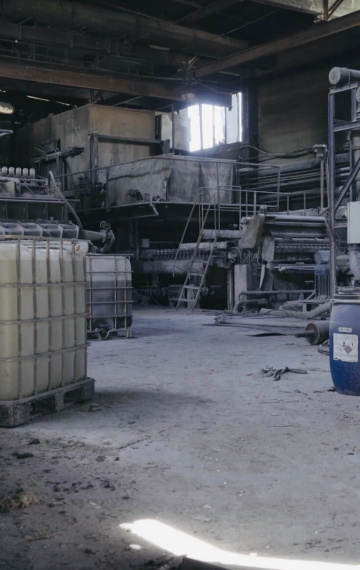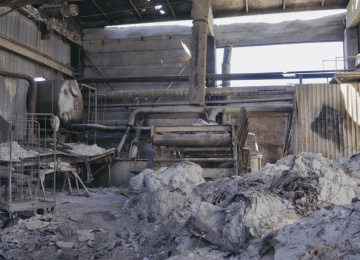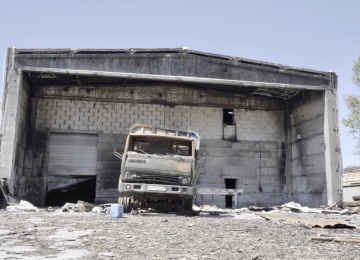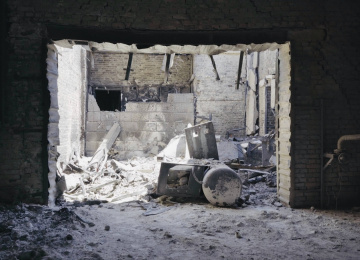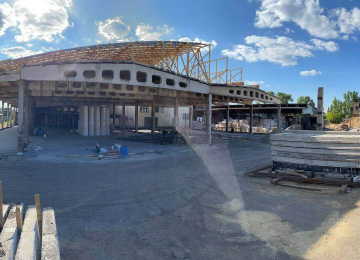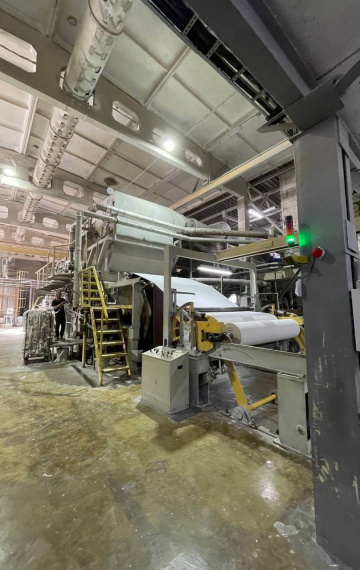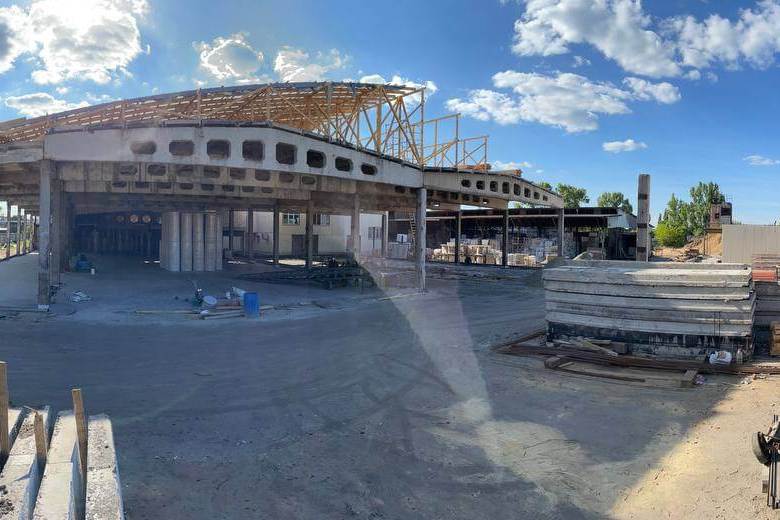
The story of Amethyst, a company that produces high-quality toilet paper and paper towels, begins in 1990, and in more than one way it’s a story of invention being born of necessity.
Shortly before the breakup of the Soviet Union, three men in Chernihiv, a regional centre in north-central Ukraine with a population of about 300,000, needed to make a living during these difficult economic times, and so went to Poland to look for work.
“A Polish friend once gave us an old truck,” recalls one of the men, Valeriy Radchenko, now Amethyst’s director general.
“He offered it for free and said that we could pay him back when we were able to.”
So as not to drive back home with an empty vehicle, they loaded it with toilet paper, which in those times of widespread shortages was simply impossible to find in Ukrainian stores. They kept some for themselves and quickly sold the rest at a local market.
In this way, an almost accidental trade transaction gave birth to a thriving business – which after 30 years would be a leader in its segment, exporting its products to Poland, the Czech Republic, Romania, and Israel.
From imports to exports
Initially, the newly created business focused only on importing finished products. But later, the partners realized they wanted to expand.
“At first, in Poland, our friends helped us purchase several machines producing finished goods from ‘semi-finished’ ones,” Radchenko says. “You couldn’t really call this full-fledged production, because we actually just unwound the finished paper from huge bobbins and made it into ordinary household products. However, without this step, we wouldn’t have been able to go any further.”
The company purchased its first machine for its own production of paper in 1999. It was outdated equipment from 1924 – low in productivity and extremely energy inefficient. Nevertheless, with a similar machine acquired a little later, it worked at the enterprise for three years, until Amethyst was able to purchase modern, high-tech equipment.
By 2022, the company had grown tenfold. More than 1,000 tonnes of finished products, which were in great demand both in Ukraine and abroad, were being shipped from the factory’s workshops every month. The equipment, raw materials, and finished products were located on a huge production site with an area of 5,500 square meters.
On the eve of Russia’s full-scale invasion of Ukraine, the company imported state-of-the-art robotic equipment for the production of paper towels, demand for which was constantly growing. Moves to boost energy efficiency were also in the works – Amethyst planned to install solar panels with a generating capacity of 1,000 kW on the roof.
Rebuilding
When Russian tanks rolled into the country on 24 February 2022, Chernihiv Oblast was one of the first Ukrainian regions to be invaded. Amethyst’s business partners realized the situation was serious, so they halted production and let their employees leave.
“I myself went to Kyiv to bring my son back,” Radchenko says. “But we couldn’t return to Chernihiv – the military forces no longer allowed civilians to enter the city.”
Then, on a terrible day in March, Radchenko got a call from workers living near the Amethyst factory, informing him that the factory had been hit by rockets.
“I watched the fire that destroyed the factory after the Grad rocket shelling while standing 60 kilometres away from the factory,” he says. “It was very easily visible, as more than 2,000 tonnes of paper products were burning.”
But Radchenko could only see the consequences of the huge fire that had engulfed the factory up close in early April, when the Ukrainian Armed Forces liberated Chernihiv Oblast from Russian military occupation. What he saw was shocking: only damaged metal structures remained at the site of the formerly flourishing factory.
“I remember talking to a representative of the bank that gave us loans for the purchase of equipment before the war,” Radchenko says, with a grim smile. “The equipment, of course, was insured, but the insurance did not cover force majeure. (The bank representative) inspected what used to be the factory and told me, ‘You’re bankrupt.’”
Nevertheless, after a short meeting, Amethyst’s partners took a firm decision to resume production – no matter how difficult and complicated this process might be.
Fortunately, the company received the much-needed help. With the credit line provided by the bank, suppored by the EU guarantee risk-cover mechanism implemented by Bank Gospodarstwa Krajowego (BGK), Polish Development Bank, Amethyst received the loan funds necessary for recovery. Ukrainian businesses and the company’s Polish partners provided a lot of help as well. The funds the company received in the form of grants were mostly spent on buying equipment and raw materials. For example, a European Union grant helped the company restore the production of women’s cotton tights and the company’s own Lady May brand: Using EU funds, the company bought the special machines it needed, thanks to which 20 new jobs were created.
“From the very beginning, we gave up trying to get grants, since the amounts they offer are too small for our scale.” Radchenko says.
“However, we weren’t left alone with the challenge. The company dismantling the debris agreed to be paid in kind for the work with the scrap metal left from the workshops. Our Polish partners funded the restoration of the boiler room, where all the wiring and electronics had been completely gutted. A Ukrainian company agreed to make a roof worth UAH 4 million ($100,000, to be paid for) in instalments.”
The company is now completing the first phase of construction of a new factory, on an area of about 2,000 square metres. Production of basic products has already resumed, although only at 60–70% of pre-war volumes. The company is again supplying its products to Poland, and there are plans for further development.
Amethyst still faces many problems, however. Some export markets are blocked for the company due to limited logistics, though there are no troubles finding buyers. The problem of split production still needs to be solved: the company has had to place its production equipment in two separate locations, 500 meters apart.
But Radchenko is optimistic about the future. He believes that Amethyst will soon become a modern, energy-efficient enterprise again, and that Ukraine will defeat the enemy that destroyed his original factory.

